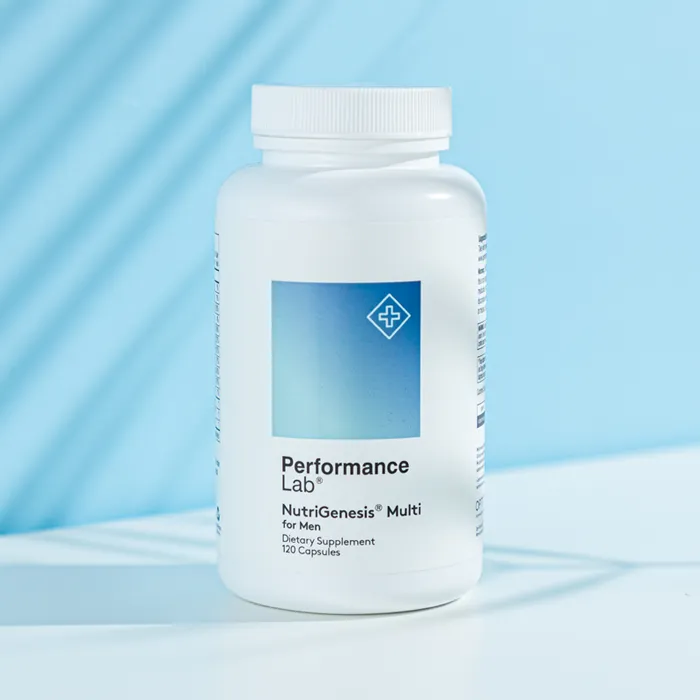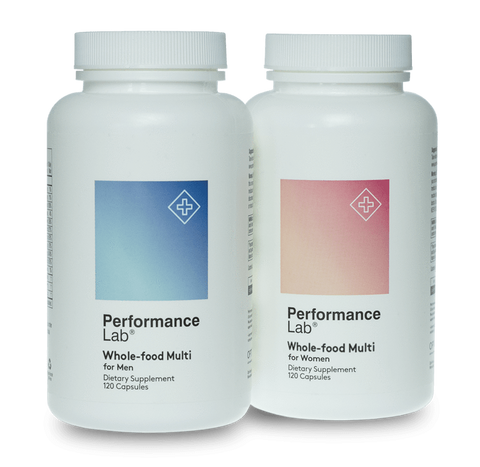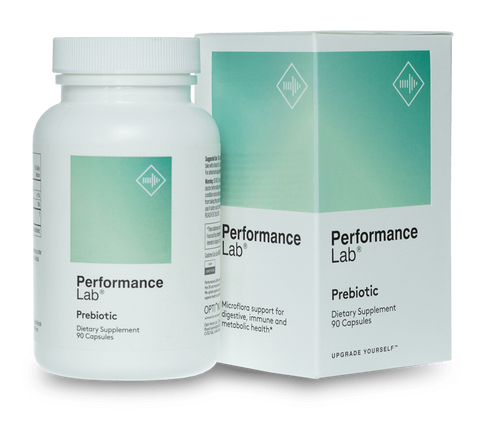Early in adopting a vegetarian or vegan lifestyle, the question of vitamins, supplements, and multivitamins inevitably comes up: do vegetarians need a multivitamin, or can they get enough nutrients from a whole food vegetarian diet?
For those on the carnivorous end of the dietary spectrum, the same question applies, due to the assumption that a total “whole food” diet requires a supposedly more balanced “omnivorous” approach to meal prepping and eating.
It’s a fair question.
Many plant foods are high in certain vitamins and minerals, whereas other micronutrients are predominantly found in meats.
However, for both vegetarians and carnivores alike, including the common omnivore in the middle, the importance of supplementing a multivitamin for men is only increasing not only due to voluntary self-limited food choices but due to the nutrient-sapping effects of modern food processing in general.
Though in this article we’re primarily focusing on the Best Multivitamin for Vegetarians, including the key and essential vitamins and minerals that vegetarians should focus on, the information provided here may be useful to anyone and everyone of all dietary lifestyles.
But, yes, vegetarians and vegans: take special note.
Key Takeaways
- Even with a well planned vegetarian diet, it can be hard to cover every micronutrient due to soil depletion, food processing, and limited animal sourced nutrients.
- Key nutrients of concern for vegetarians include vitamin B12, iron, zinc, iodine, and vitamin D, along with several other vitamins and minerals.
- A high quality multivitamin for men can help fill these gaps and support energy, immune function, hormone health, and long term performance.
- Choosing a formula that uses highly bioavailable, food like nutrient forms and avoids unnecessary additives is important for daily use.

Getting the Best and Most Essential Nutrients: The Beginner’s Guide on Multivitamins
In general, taking an all-natural, plant-based supplement is best for avoiding cheap ingredient forms and harmful synthetics.
Virtually all multivitamin supplements deliver the essential micronutrients your body needs. But few actually deliver these micronutrients in forms that your body can efficiently absorb.
These cheap-O multivitamin formulas are poor answers to the low nutrient density associated with modern “ultra-processed” foods:
Nutrient density refers to the amount of beneficial nutrients (vitamins, minerals, aminos, etc.) in proportion to the caloric (energy) content of any given food. Research suggests that “ultra-processed” foods are not only low in nutrient density but strongly associated with obesity and cardiometabolic disorders.[1]
Foods labeled as “vegetarian” or “vegan” are not exempt from poor nutrient density. Many food manufacturers do what they can to legally advertise their food products as “healthy” and “organic” while providing cheaply processed food items high in “empty calories” absent of the most beneficial and best vitamins and minerals for your health.
And this is only in addition to the common micronutrient deficiencies associated with a predominantly plant-based diet.
List of Key and Essential Vitamins and Minerals for Vegetarians
Even while avoiding “empty calorie” foods, maintaining sufficient levels of all essential vitamins and minerals can be difficult for vegetarians.
In general, a few of the more common nutrient deficiencies associated with plant-based eating include:
- Vitamin B12: though a generally common deficiency, vegetarians and vegans are particularly at-risk of vitamin B12-deficiency, which has been associated with cognitive and energy metabolic disorders.[2]
- Vitamin D: vegetarians should supplement vitamin D, the “sunlight” vitamin, because everyone should supplement vitamin D, a life-essential compound found in very few food sources, plant-based and meat-based alike.[3]
- Calcium: though carefully selecting calcium-rich plant-based foods may help combat calcium deficiency, the absence of dairy products in the vegan diet may introduce difficulties in acquiring adequate dietary calcium.[4]
- Iron: in a comparison between vegetarians and nonvegetarians, a higher proportion of vegetarians were found to have depleted iron stores and iron deficiency anemia,[5] suggesting an increased need for iron supplementation among vegetarians.
- Zinc: despite a high variability in vegetarian diets, populations committed to a vegetarian diet generally have low levels of zinc, a key mineral involved in immunity and sex hormone status.[6]
By focusing on these key vitamins and minerals, many vegetarians and senior men can help keep their total nutrient levels within an optimal range. This is where vitamin supplements and multivitamins can play a role.
However, the best all-in-one multivitamin stack that supplies these vitamins and minerals—and more—for vegetarians is Performance Lab® NutriGenesis® Multi.
Let’s take a brief glance at this multi stack.
Performance Lab® NutriGenesis® Multi

Performance Lab® NutriGenesis® Multi is an ultramodern multivitamin stack designed for overall health and peak fitness.
NutriGenesis® Multi supports overall health and performance by:
- Providing foundational nutritional support for healthy whole-body physiology and metabolic performance for all ages and dietary lifestyles.
- Bolstering daily vitality and immunity to improve both acute and long-range measures of health and performance.
- Filling the nutritional voids common to vegetarians with potent, easy-to-absorb micronutrient forms rarely found in modern, plant-based meals.
- Meeting gender-specific nutrient needs for optimal sex hormone performance with two distinct formulas tailored “For Men” and “For Women.”
Being “vegan-friendly” isn’t the only important criterion for an effective vegan-friendly multivitamin supplement.
Ingredient quality and overall formula cleanliness are also important—two criteria that Performance Lab® NutriGenesis® Multi meets with its nature-identical micronutrients and synthetic-free NutriCaps® capsules.
Continue reading to learn more about why vegetarians and vegans should take multivitamin supplements, as well as the specific health advantages of increasing your essential micronutrient intake while on a vegetarian/vegan diet...
Best Health For Your Future: Do Vegetarians and Vegans Need to Take a Multivitamin?
Back to the BIG question at hand: do vegetarians and vegans need to take a multivitamin?
Again, while virtually everyone may benefit by taking a multivitamin, vegetarians and vegans may particularly benefit from adding a multivitamin to their daily routine for a couple reasons:
- Food Processing – modern manufacturing processes value quantity over quality, resulting in a lot of nutrient-sapped foods, such as vegetables that are most nutrient-dense when eaten raw.
- Meaty Micronutrients – certain nutrients, such as carnosine and vitamin B12, predominantly come from non-vegetarian food sources.
An exceptionally vigilant and well-researched vegetarian meal plan full of whole food and with quality control measures and plant-food diversity may help you acquire all micronutrients and sufficient levels.
However, this is, of course, easier said than done, especially for all the busybody vegetarians who eat on-the-go.
For this reason, many vegetarians who need those essential nutrients take a multivitamin simply for the peace of mind (quite literally, considering the strong link between diet and mental health![7]).
Common Malnutrition Risk Factors Associated with Vegetarian Diets: Why Multivitamin Supplements May Benefit
Increasingly, “vegetarian” is becoming synonymous with “healthy.” Even so, there are potential downsides and risk factors to abiding by a strictly vegetarian diet plan, especially as we’re remembering that not all “plant-based” foods are exactly good and essential for your health.
For example: French fries.
Thus, it’s important to note that not all vegetarian diets are the same. In fact, there’s high variability in the way vegetarians should eat, and, thus, a high variability in the vitamins and nutrients they are consuming as well as the malnutrition risk factors associated with vegetarian diets.
With that in mind, some of the more common side effects linked to the specific nutrient deficiencies covered in this article (vitamin B12, vitamin D, calcium, iron, zinc) include:
- Poor cognitive performance
- Mood imbalance
- Hair thinning and loss
And, of course, the infamous “vegetarian gas” linked to the increased intake of fibrous plant foods in the diet.
Okay, but There are Advantages to a Meatless Diet, Though, Right?
Though some experience a common set of downsides associated with “going vegan,” many naturally experience a significant and much needed health boost in many areas of their health and fitness when they cut meat and animal-based foods from their diet.
Some of the more common benefits of a vegetarian diet:
- Increased Energy Levels
- Leaner Physique and Muscle Mass
- Lower Blood Pressure
- Improved Cardiometabolism
- Balanced Blood Sugar
And many more, depending on many other lifestyle and dietary factors. Again, due to the high variety of vegetarian diets, your mileage may vary. But let’s not get it twisted: the health advantages gained by a generally more nutritiously rich plant-based diet are immense.
Just make sure to also focus on those key micronutrients that can't be derived from plants and are generally absent in many vegetarian diets - even the best and most healthy ones.
Stack Your Multivitamin with Performance Lab® Prebiotic to Enhance Nutrient Absorption

A healthy gut not only feels good but may help you maximize the efficacy of your health supplements and multivitamins.
This certainly seems to be the case with Performance Lab® Prebiotic, a (read it again) prebiotic supplement (not probiotic) that nourishes all strains of the beneficial microbiota in your gut that assist with:
- digestion
- absorption
- cognitive health (via the gut-brain axis)
Though prebiotics may work in tandem with probiotics, prebiotics are the superior supplement option as they feed the beneficial bacteria already in your gut, instead of supplying a distinct strain of bacteria that may be dead on arrival, given the fragile nature of probiotics.
Taken daily, a prebiotic formula, such as Performance Lab® Prebiotic, may help improve your gut health, in turn enhancing the absorption rates of Performance Lab® NutriGenesis® Multi’s essential nutrients.
Supplement Facts: Orafti® Synergy1 (Inulin-FOS) (FructoOligoSaccharides from Chicory Root [Cichorium intybus])
Learn more about the Best Prebiotic Supplements here.
Essential Nutrients: What to Look for in a Vegetarian Multivitamin Formula
In the same way that French fries technically qualify as “vegetable” products, many multivitamins and multivitamin supplements technically qualify as “vegetarian,” - and therefore "healthy". Insomuch that they exclusively use plant-sourced ingredients and plant-based additives—or, at the least, non-animal additives.
However, this isn’t enough to qualify a vegetarian multivitamin formula as effective nor healthy.
Here are a few things to take into consideration when looking for the best and effective, healthy multivitamin for vegetarians:
- Quality: are the ingredients in potent, easy-to-absorb forms?
- Quantity: are the ingredients sufficiently dosed?
- Focus: are there any unnecessary “hybrid” formula items (e.g., caffeine)?
- Cleanliness: are the additives all-natural and minimal?
- Affordability: does the price match the value?
Essentially, what you want is a multivitamin formula that uses only the best and most highly bioavailable ingredient forms at effective dosages delivered in clean, green, synthetic-free capsules. No artificial sweeteners or tablet preservatives or gimmicky additions (again, e.g., caffeine).
Just the good kind of stuff.
NutriGenesis®: Nature-Identical, Vegan-Friendly Micronutrients

Speaking of the good stuff: NutriGenesis® represents an advancement in micronutrient supplementation, a significant step above the usual multivitamin formula found on store shelves.
Using proprietary nutrient technology, NutriGenesis® supplies nature-identical micronutrients complexed with natural cofactors, such as probiotics, enzymes, fibers, and antioxidants, for enhanced bioavailability and health-supportive activity.
List of Key and Essential Vitamins and Minerals for Vegetarians
Eat more plants, get more nutrients—except for the following essential nutrients, which are generally more difficult to come by when committed to a wholly green diet:
Vitamin B12
Vegetarians and the elderly (and, by that token, elderly vegans) are particularly at risk of having deficient levels of vitamin B12, one of several B-vitamins important to cognitive health and energy metabolism. Vegans more so than vegetarians, especially vegans who don’t take a B12 supplement, have been found in clinical research to be especially at risk of B12-deficiency.[8] Taking vitamin supplements like a comprehensive B-vitamin complex may help combat not only B12-deficiency but all B-vitamin-deficiency.
Vitamin D
Although vegetarian status isn’t a key central factor in vitamin D status, vegetarians and non-vegetarians alike should supplement vitamin D, a life-essential vitamin associated with immunity, bone health, sex hormone status, and protein synthesis. Vegans in cold regions with poor sunlight exposure are especially at risk of vitamin D-deficiency and should consider taking a vitamin D supplement if they aren't getting enough of it.[9]
Calcium
Associated with milk and other dairy products, calcium is a mineral commonly deficient in plant-based diets, most notably among vegans, who demonstrated in the lowest calcium intake in clinical research.[10] A key mineral for bone and joint health, as well as cardio and muscular performance, calcium is a worthwhile mineral for active, athletic vegans and vegetarians to supplement in multivitamins.
Iron
Low levels of iron are a particular risk among vegetarians over non-vegetarians,[11] though high levels of iron are also a common danger for people of all dietary lifestyles. With that in mind, supplementing a moderate amount of iron via a multivitamin supplement is a smart move for vegetarians who aren't getting enough, which may assist with blood cell formation, oxygenation, neurotransmitter synthesis, and exercise performance.
Zinc
Another mineral commonly deficient among vegetarians more so than non-vegetarians: zinc.[12] An essential mineral involved in immunity, vision, nervous health, and cell growth, zinc is one of the more important trace minerals for overall health and performance, especially among men given zinc’s direct correlation with testosterone status.
Top Vegetarian Multivitamin: Performance Lab® NutriGenesis® Multi

If vegetarians and vegans need to take a daily multi, then the daily multi they need to take is Performance Lab® NutriGenesis® Multi, the cleanest and greenest multivitamin on the market.
Split into two formulations—“For Men” and “For Women”—NutriGenesis® Multi supplies all the essential vitamins and minerals you’ll need, without wasting any time on unnecessary “hybrid” ingredients or harmful synthetics and artificial additives.
Let’s check out the formula.
Performance Lab® NutriGenesis® Multi Formula Analysis
- Vitamin A+ (as Retinol and Beta-Carotene), 600 mcg RAE
- Vitamin C+, 60 mg
- Vitamin D+, 25 mcg
- Vitamin E+, 20 mg
- Vitamin K+ (K1 & K2), 100 mcg
- Vitamin B1+, 8 mcg (for Men), 4 mcg (for Women)
- Vitamin B2+, 4 mg
- Niacin+, 20 mg NE
- Vitamin B6+, 4 mg
- Folate+, 668 mcg DFE (for Men), 1336 mcg DFE (for Women)
- Vitamin B12+, 50 mcg
- Biotin+, 300 mcg
- Pantothenic Acid+, 20 mg
- Calcium+, 18 mg (for Men), 21 mg (for Women)
- Iron+, 2 mg (for Men), 8 mg (for Women)
- Iodine+, 150 mcg
- Magnesium+, 17 mg (for Men), 21 mg (for Women)
- Zinc+, 15 mg (for Men), 10 mg (for Women)
- Selenium+, 125 mcg
- Copper+,5 mg
- Manganese+, 2 mg
- GTF Chromium+, 120 mcg
- Molybdenum+, 75 mcg
- Potassium+, 33 mg (for Men), 16 mg (for Women)
- Inositol+, 25 mg
- Boron+, 1 mg
- Vanadium+, 10 mcg
For a multivitamin supplement to work, in needs to check three boxes:
- Comprehensive – needs to have all essential vitamins and minerals
- Quality – needs to supply them in bioavailable, absorbable forms
- Quantity – needs to sufficiently dose them at clinical dosages
Included in box (2), the “quality” box, is the quality of the formula at large, meaning not only the quality of the ingredients but also the additives—or the “Other Ingredients.”
Where many multivitamin supplements fail, Performance Lab® succeeds: to ensure complete absorption and utilization of its vitamins and minerals, Performance Lab® NutriGenesis® Multi supplies high-quality micronutrients without slowing them down with any absorption-impairing synthetic additives and artificial additives.
Performance Lab® uses zero preservatives or colorants—nothing that would cause any issues with nutrient absorption or gut health—instead encapsulating its vegan-friendly formula in clean, green NutriCaps®, a patented capsule constructed out of fermented tapioca, or pullulan.
Inside and out, Performance Lab® NutriGenesis® Multi is vegan-friendly, eco-friendly, non-GMO, gluten-free, synthetic-free—the works. Great for vegetarians and non-vegetarians alike.
Get the Best Deal on Performance Lab® NutriGenesis® MultiConclusion about the Best Multivitamin for Vegetarians
The major upside of committing to a predominantly plant-based diet: increasing your intake of life-essential nutrients including vitamins and minerals.
But the downside? Risking deficiency in a few key life-essential nutrients predominantly found in animal meats and byproducts.
Performance Lab® NutriGenesis® Multi for vegetarians who can get a steady supply of those essential nutrients and then some in highly bioavailable, vegetarian-friendly NutriCaps® capsules.
In supporting a firm nutritional foundation, Performance Lab® NutriGenesis® Multi establishes a solid baseline for other health and fitness supplements to build upon, for both vegans and non-vegans, men and women.
Prebiotic-infused and probiotic-cultivated, Performance Lab® NutriGenesis® Multi is safe for long-term, daily use.
References
- Poti JM et al. Ultra-processed Food Intake and Obesity: What Really Matters for Health – Processing or Nutrient Content? Curr Obes Rep. 2017 Dec; 6(4): 420-431.
- Pawlak R et al. How prevalent is vitamin B(12) deficiency among vegetarians? Nutr Rev. 2013 Feb; 71(2): 110-7.
- Parva NR et al. Prevalence of Vitamin D Deficiency and Associated Risk Factors in the US Population (2011-2012). Cureus. 2018 Jun; 10(6): e2741.
- Kohlenberg-Mueller K, Raschka L. Calcium balance in young adults on a vegan and lactovegetarian diet. J Bone Miner Metab. 2003; 21(1): 28-33.
- Pawlak R et al. Iron Status and Vegetarian Adults: A Review of Literature. Am J Lifestyle Med. 2018 Nov-Dec; 12(6): 486-498.
- Foster M et al. Effect of vegetarian diets on zinc status: a systematic review and meta-analysis of studies in humans. J Sci Food Agric. 2013 Aug 15; 93(10): 2362-71.
- Murphy M, Mercer JG. Diet-Regulated Anxiety. Int J Endocrinol. 2013; 2013: 701967.
- Pawlak R et al. The prevalence of cobalamin deficiency among vegetarians assessed by serum vitamin B12: a review of literature. Eur J Clin Nutr. 2014 May; 68(5): 541-8.
- Outila TA et al. Dietary intake of vitamin D in premenopausal, healthy vegans was insufficient to maintain concentrations of serum-25-hydroxyvitamin D and intact parathyroid hormone within normal ranges during the winter in Finland. J Am Diet Assoc. 2000 Apr; 100(4): 434-41.
- Clarys P et al. Comparison of Nutritional Quality of the Vegan, Vegetarian, Semi-Vegetarian, Pesco-Vegetarian and Omnivorous Diet. Nutrients. 2014 Mar; 6(3): 1318-1332.
- Haider LM et al. The effect of vegetarian diets on iron status in adults: A systematic review and meta-analysis. Crit Rev Food Sci Nutr. 2018 May 24; 58(8): 1359-1374.
- Freeland-Graves JH et al. Zinc status of vegetarians. J Am Diet Assoc. 1980 Dec; 77(6): 655-61.












